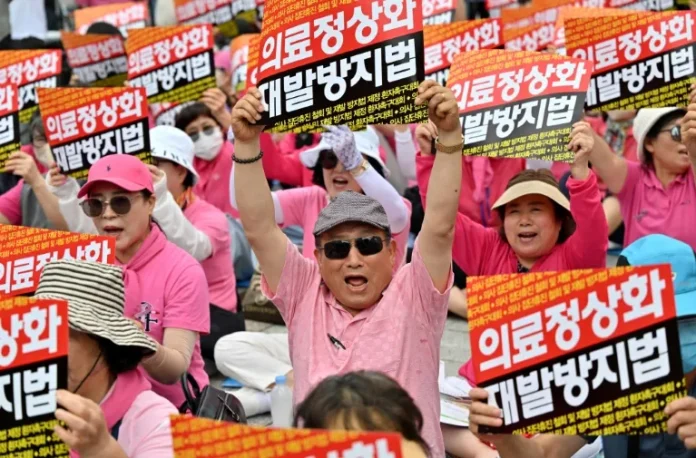Hundreds of South Korean patient rights advocates gathered on Thursday to urge doctors to end a long strike that has affected public health services, Korean media reported.
Thousands of trainee doctors stopped work in February to protest government plans to increase medical school quotas, which they said would affect the quality of special education. The strike has caused disruptions at hospitals and forced key treatments, including chemotherapy, to be postponed or canceled.
About 300 protesters gathered in the capital on Thursday to call for an end to the strike and laws to prevent further strikes. The organisers said in a statement:
… we could no longer bear the ongoing damage and anxiety. Under no circumstances should medical care for patients be suspended.
Kim Jung-ae, whose daughter is fighting for treatment for a rare syndrome, said the medical community had used patients as “pawns.” She asked, shaving her head in protest:
Would you do this if the patients were your sons and daughters?
In May, the Korean government finalised an increase of about 1,500 admissions quota for medical schools for 2025, which it said would address a shortage of doctors and a rapidly aging population.
Senior doctors and professors of medicine at some of the country’s key medical institutions recently joined an indefinite strike in solidarity.
Doctors at some of the country’s largest medical facilities have also suspended outpatient treatments and non-emergency surgeries.
South Korea has the lowest number of doctors per capita among Organisation for Economic Co-operation and Development countries. In 2022, the country had 2.6 doctors per 1,000 people, compared to the organisation’s average of 3.7.
About 76 percent of South Koreans support the plan to increase the number of medical students, a Gallup Korea poll showed, fearing a severe shortage of doctors outside Seoul.
